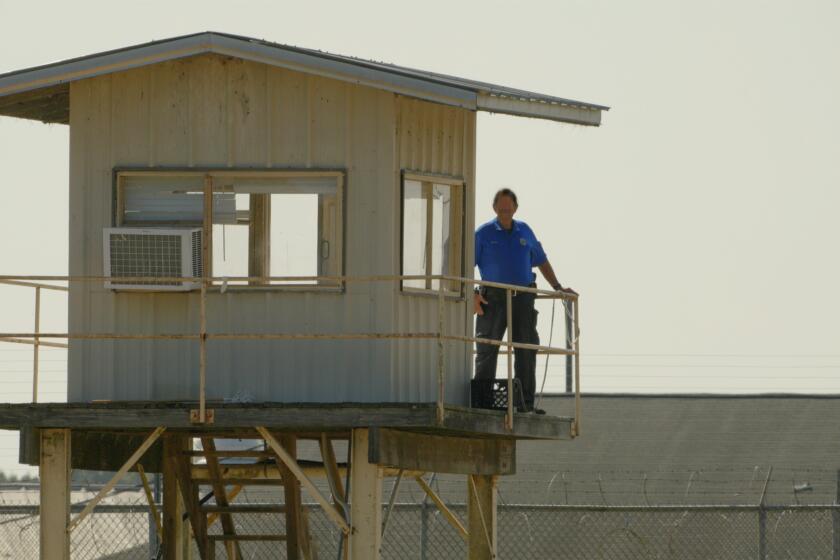Five female directors, many stories: A conversation on filmmaking, Netflix and more

Five female filmmakers with new projects being released by Netflix came together recently for a group conversation. Haifaa al-Mansour, Susanne Bier, Sara Colangelo, Nicole Holofcener and Tamara Jenkins revealed their personal journeys as filmmakers
- Share via
On any given working day, the bustling lobby of the Netflix office building on Sunset Boulevard can feel like the heart of Hollywood, surging with the twinned energy of promise and anxiety as all manner of the famous and the aspiring pass on through.
One recent Sunday afternoon, it was calm, quiet and empty, save for five women who were having their portrait taken. They made for a formidable and accomplished group, and all have directed projects being released by Netflix by the end of the year.
Indie stalwart Nicole Holofcener’s “The Land of Steady Habits,” starring Ben Mendelsohn, is up first on Sept. 14. One week later, on Sept. 21, comes Haifaa al-Mansour’s romantic dramedy “Nappily Ever After,” starring Sanaa Lathan.
FULL COVERAGE: 2018 fall movie preview »
Tamara Jenkins’ first film in 11 years, “Private Life,” starring Kathryn Hahn and Paul Giamatti, follows on Oct. 5. Sara Colangelo’s “The Kindergarten Teacher,” starring Maggie Gyllenhaal, which won the director a prize at this year’s Sundance Film Festival, debuts Oct. 12. And, finally, Susanne Bier’s post-apocalyptic “Bird Box,” starring Sandra Bullock and Sarah Paulson, bows Dec. 21.
And with that Netflix will release more films directed by women in the next four months than the combined six major Hollywood studios have released in the entire year to date. (For the record, that number for the studios is four. If you exclude one title from specialty division Sony Classics, it’s just three.)
Photos finished, the quintet sat down in one of the building’s many conference rooms, this one named for the children’s show “Beat Bugs.” Almost immediately the conversation veered toward why exactly they’ve been gathered together, and whether asking them to unite leads to a productive conversation or a creative barrier.
I would imagine with the current conversation around women filmmakers, that several of you have been through some version of this moment before.
Jenkins: Every year, every decade that I make a movie — because I don’t make them very much.
Does change happen and go away? Why does this conversation have to keep coming up?
Bier: Because it’s still a huge problem. It only keeps coming up because it hasn’t gotten better fast enough.
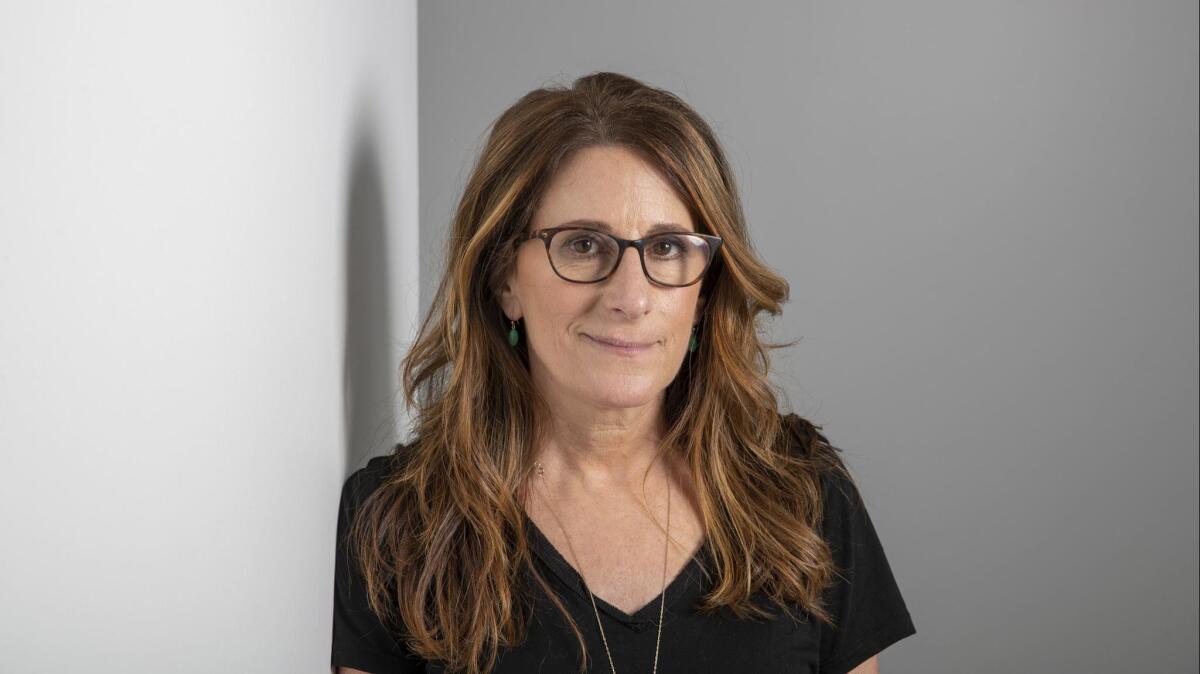
Nicole, was directing the Amy Schumer sketch “Last … Day,” with Julia Louis-Dreyfus, Patricia Arquette and Tina Fey, your version of answering these questions?
Holofcener: No. That sketch was just a really good job. It was so funny and so true. All of it’s true, and frustrating. I just don’t think that putting all of us women in a room together without men is helping anything. Unless they start having male roundtables.
Bier: I agree. The fact that it’s a novelty, the fact that we might actually have nothing in common other than our gender, and there is this weird thing where we’re supposed to be aligned. And I’d like to be aligned, but I’d also like to be aligned with male directors.
Al-Mansour: I find it’s an important time now and roundtables like this give a chance to have our voice heard. I see it as an opportunity and we should seize it. More women? Yes, give us more. Because I come from a place where it’s really hard for women, I always try to see the glass half-full because otherwise you feel very depressed if you’re thinking about what is lacking rather than what it’s giving.
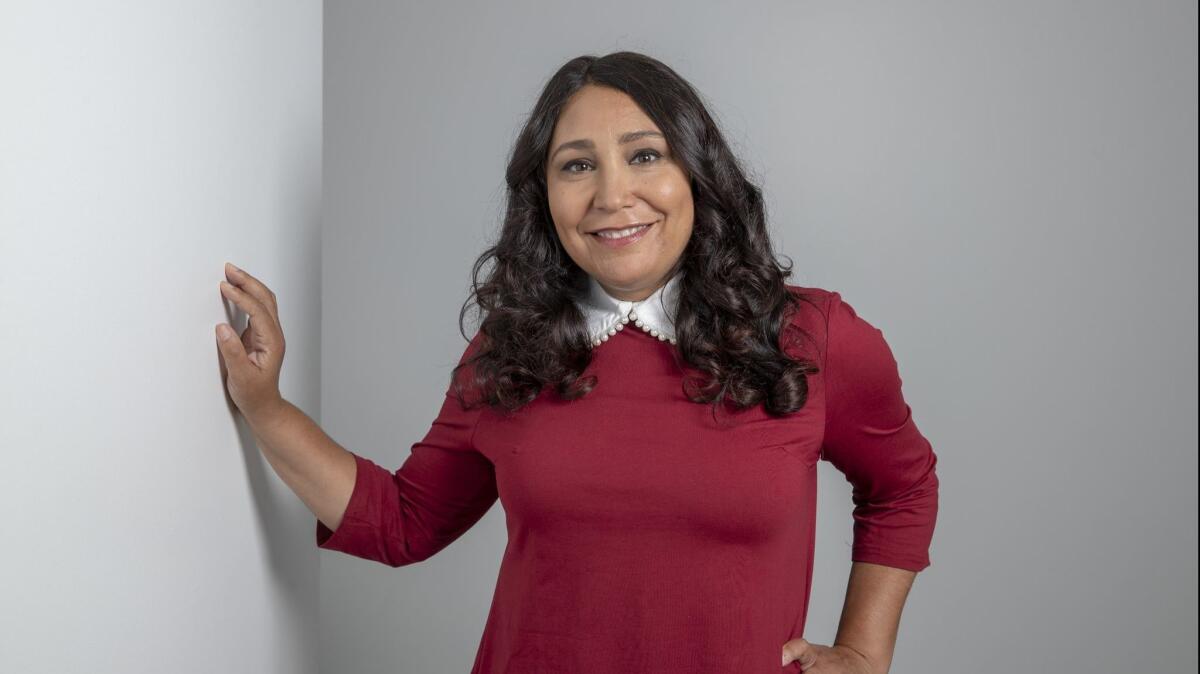
Bier: I don’t think I agree with you. Fundamentally I agree with the glass half-full, but I guess the frustration is it’s a little bit of a way of putting us in a box.
Holofcener: We’re in the female ghetto. I think the more female-y female things get made, we’re still like this oddity. We still don’t rank with the big boys. And we’re all the lucky ones too. We can’t complain, we’re getting our films made.
Al-Mansour: But because there are few of us in the industry, we need a chance to explain our point of view. Whether it is sincere or pretend, there is a moment when we need to take it and voice our opinions on what we really want out of this.
Bier: I personally also feel some responsibility in terms of younger women. Younger women wanting to do this, showing it’s possible, that there is a way.
Colangelo: There’s something about our world now that’s so scary, and the world on Instagram and Facebook and hashtags is so different from the reality. Hopefully that’s not the case with women in film, hopefully we’re making more movies and all of this sort of cultural banter means something on the ground. And I think sometimes I feel that they’re getting better, then you see Stacy Smith’s newest report and things are the same or even worse.
Jenkins: That’s the Annenberg study? I found that really depressing.
Bier: But you also have to see which movies are being made. In other words, the kind of movies are getting more polarized. There’s a whole slate of movies which are not being made at the moment, which are actually being made by Netflix or other TV entities, and those movies have a potential for a more diverse point of view.
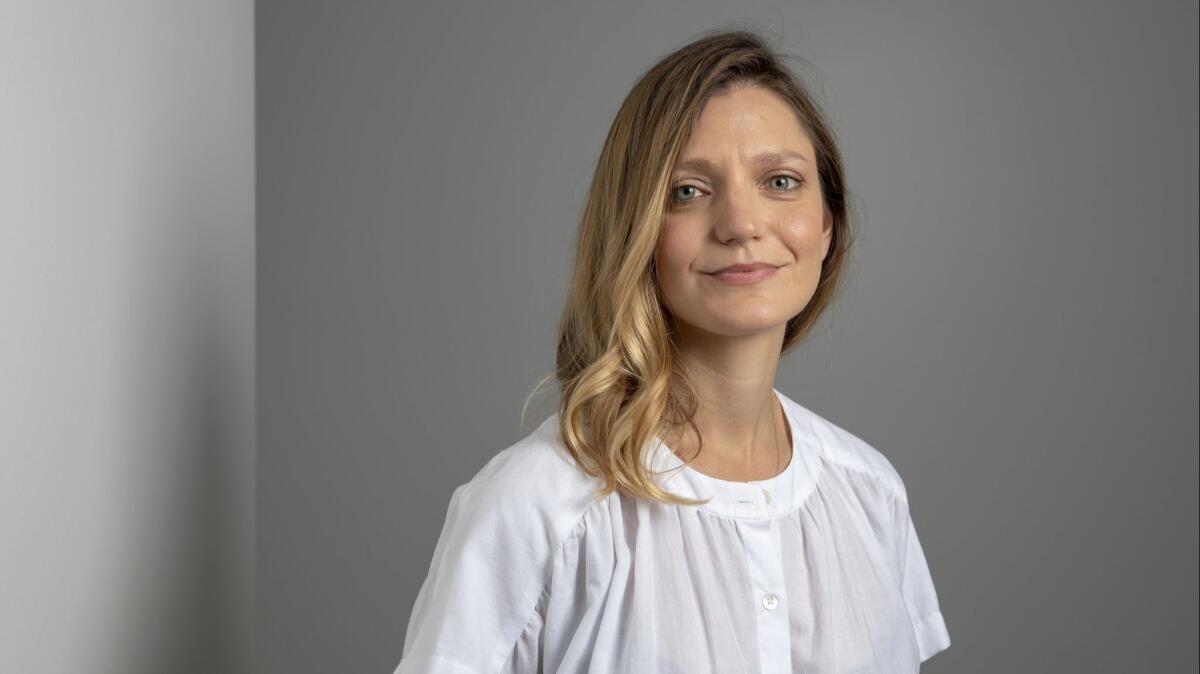
Well, the other reason why you are all in this room is that your movies are being released by Netflix. Sara, your film was made independently and then picked up. What imprint does Netflix put on a movie?
Colangelo: I think had this been four or five years ago I might have been more skeptical to a day-and-date [release] or what that might have looked like. But it’s still going to be in theaters, people will have that experience. And in a way it’s exciting for the audience to be huge. Netflix, people can access it from other countries. So I think there’s a lot of excitement and opportunity in that. And I think it’s really shifted in the last few years.
Holofcener: The freedom making a movie at a place like Netflix afforded me was enormous. They let me cast who I want, they didn’t tell me to do anything different, they visited on the set just to say hi. That’s a great experience.
But does it change how you think of your projects?
Jenkins: Is it still a movie if it’s not a movie? If a tree falls and it’s not in cinemas in the same way? I think about that a lot, because I wrote it to be a movie, I never knew how it was going to be made. And I’d think to myself, “Well did Bergman shoot ‘Fanny and Alexander’ different because it was a television series?” First of all, our televisions are bigger than many screens at the Angelika Film Center, so I think that idea, in terms of scale and size, it’s just different. Have you been to the small cinemas where independent films are shown? They’re in basements and the screens are tiny.
Holofcener: I feel relieved I don’t have to worry about how long it’s going to stay in the theater. That’s always scary – “Is it gone?” I know it’s only going to be in the theater briefly, and then it can live forever as a postage stamp on everyone’s televisions. And more people will see it.
Bier: We all want to tell stories that are relevant to people. And it is somehow exciting to know that lots of people are going to see these stories. I think all of us put a lot of heart and soul and sleepless nights into everything we do and the least rewarding thing is when no one sees it. So I think it’s pretty amazing actually.
Colangelo: I wonder if viewership has changed due to Netflix, if people only watched films within their niche before because you had to buy a ticket to go in. And now, sometimes people shut it off after 10 minutes if it’s boring, but I wonder if there’s another side to that, which is people trying new things.
Jenkins: I always wonder about the things you’re getting, the algorithm that determines what you’re fed, what they think that you like based on other things that you’ve seen. And that’s the cultural equivalent of the political bubble problem. And you’re not actually having that level of exposure you’re talking about.
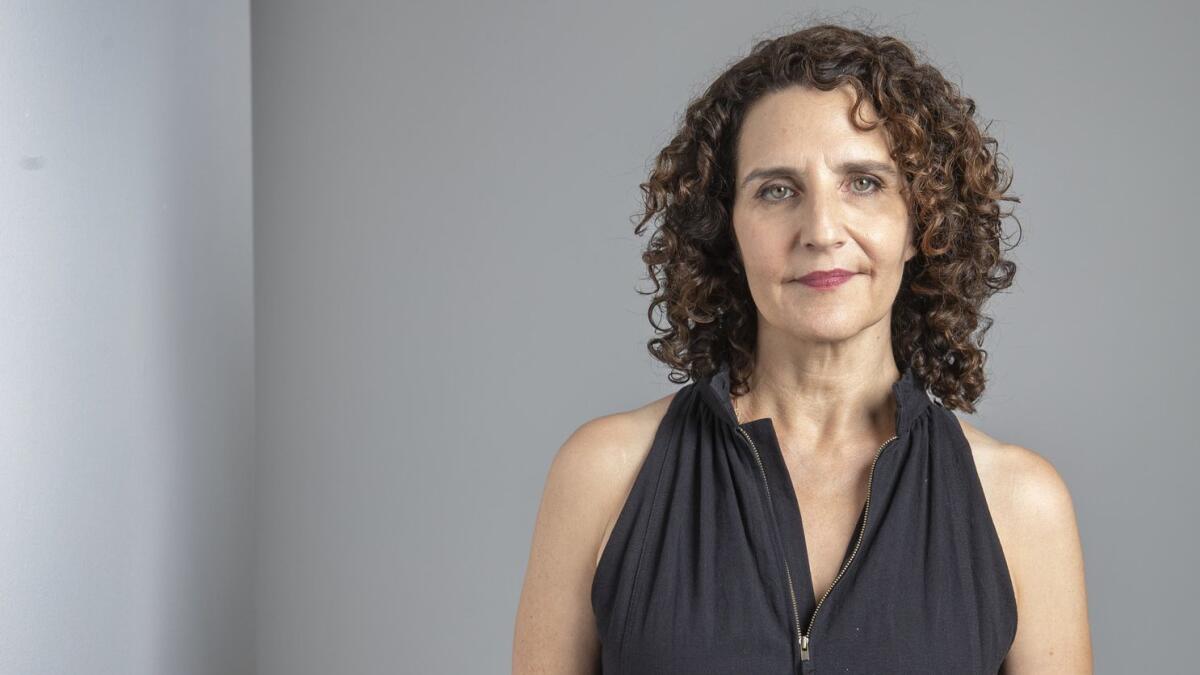
Holofcener: When I had my meeting with Netflix they said, “Well, this person, who is the least likely person, watched ‘Please Give.’ Everything before was violent thrillers and then they watched ‘Please Give.’” So they offer strange combinations.
Jenkins: Actually, I think that they used a different word than algorithm. I think they used the phrase “taste clusters.” I could be wrong. But I remember thinking it sounded very strange. I wrote it down. It sounded like some culinary experiment.
Haifaa, there’s a specific moment in your movie when Sanaa Lathan shaves her head. It’s very powerful emotionally in the film, but it must be a big deal for the production. Both practically and creatively, how do you deal with that?
Bier: Was it the last day of shooting?
Al-Mansour: No. It was in the middle. It was for scheduling. We needed the before and after. The hair has its own journey, it has to grow and we have to fit the right wigs. But it’s moments like this you need to let the actors just take it. And it’s a very rare moment, she has to shave her head, it has to be all one take and all the emotions. I was a little nervous, as a filmmaker, it’s going to happen and it’s only going to be once. That’s what happens when you’re on the same wavelength and you see the same movie. Once you are on the same wavelength it is magical.
Jenkins: It’s a very interesting issue. The ability to control and release. Control and release. That’s the whole game, you’re controlling and letting go. Actors’ jobs are so much about being fluent with their emotions. They are capable of expressing emotions in a way that a normal person isn’t. Most human beings are not very good at expressing themselves. Actors are very good at expressing themselves. There’s that balance, which I think about a lot.
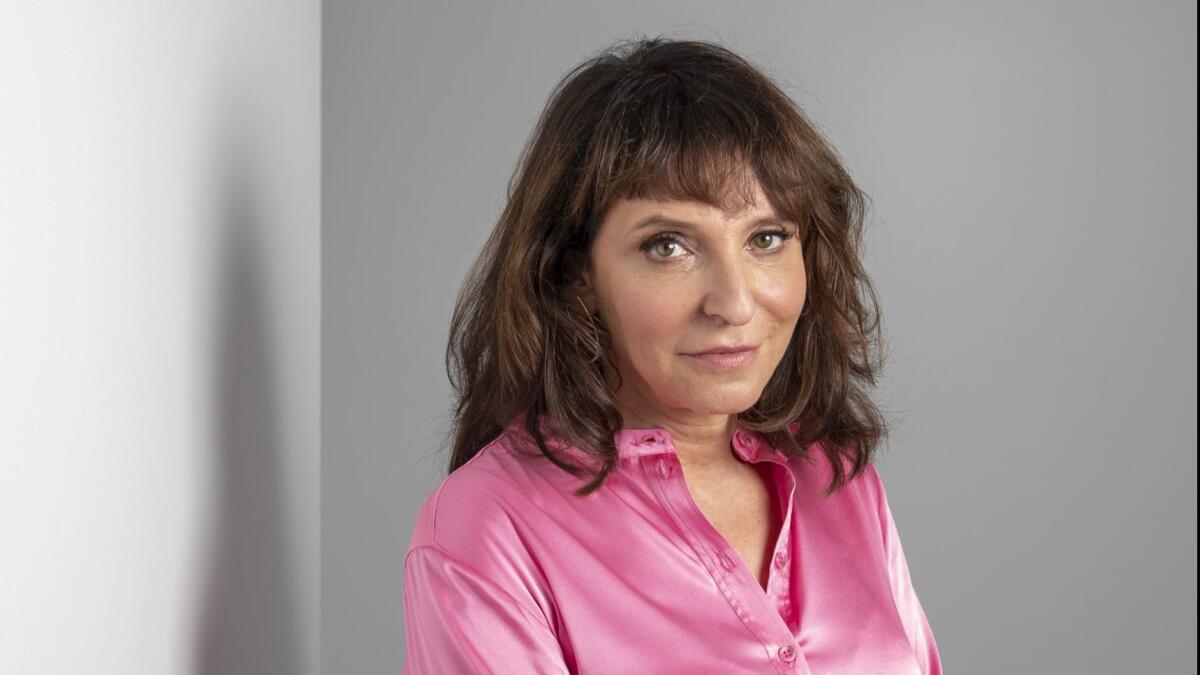
RELATED: Virtually every film coming out this fall »
Haifaa, your film is about the culture of African American women and their hair — given that there is something so culturally specific about that, what sort of challenge did it present for you?
Al-Mansour: I think it is culturally specific, but it’s a very universal story, about women and struggling with their hair. I have curly hair, and I’d never want to be seen with that hair, so I’d straighten it. I had that image in my mind for who I am based on where I come from. So I understood what it means to always feel you are not enough, the way you look. I sympathized with the character and her journey.
And yes, I made a very white film about Mary Shelley with Elle Fanning — that’s another culture too that maybe I can’t understand, but I understood what it means for a women to assert herself and have her voice heard as a creator, as an author, and to be ridiculed. So for me it is not the specificity of the culture, but the universal thing that I can relate to as a human being to the character that gives me the confidence to tackle something in a culture that is different from me.
Tamara, your film is drawn so directly from your life and your experience. Was there anything that felt like it was too personal, too close?
Jenkins: I mean, it’s fiction, but the emotional core of it I know very well. And I would say with “The Savages” too, and with “The Slums of Beverly Hills,” because it’s so specific to the way I grew up, even though they are autobiographical, fiction just takes over. I can’t explain how that shift happens.
But yes, especially with [“Private Life”], because I found the whole process so traumatizing — when I was going through my fertility woes and I was downloading it to a girlfriend, who is herself a filmmaker, she said, “You should write about this.” And I said, “No I’m never going to make a movie about this. It’s repellent, I would never do it.” And then, you know, ten years later I was making a movie about it.
I was interested in writing about a marriage — that was sort of on my radar — about middle-aged marriage. And then the idea of infertility, the emotional trial of that, and having that be the landscape that this couple had to march through, to me became a great way of examining human behavior, the behavior of a marriage. It felt so primal.
How conscious are you of the discussions about diversity and representation both behind the camera and in the stories that you tell? It’s interesting that the idea of a “white people problems” movie is now a box of its own. What do you do knowing that will be a criticism down the line?
Jenkins: It’s an interesting question. It could be a black couple that’s having the same problem in my story. I don’t know what the answer is in terms of this script, but it’s interesting, you were asking about the idea of taking something that is not your culture and making a movie about it. It seems like that’s such an interesting moment that we’re in with regards to, “I’m making a movie about a transgender person but I’m not transgender — is that a bad thing?” “I’m a white female filmmaker, can I make a movie about a black male character?” I don’t know how to answer it simply, it’s a complicated thing. I love seeing movies that aren’t about people that are just like me. But I don’t have a simple answer to the question.
Nicole, is that something you think about?
Holofcener: I knew when I made this movie it would get attacked for that. I feel like it will: “Who cares about these rich white people and their badly behaved children?” And I’m ready for it. But to me it felt like a valuable story, a very rich story about humanity. And I can only tell one story at a time and tell what interests me.
I was much more aware of casting a more diverse crowd, that was very important to me. But that’s what this book is about, these white Connecticut people. And I’m not going to throw it in the garbage and say, “Well, this is not a relevant story right now.” Maybe it’s not, politically, but it meant something to me. And I got lucky enough to make it.
Al-Mansour: I think diversity goes beyond only race. For so long we didn’t have a lot of even older white people [on screen]. There was a belief they didn’t go to the movies. And now when they discovered that demographic, now we see a lot of movies about older people.
There are a lot of people who are marginalized out of what people who greenlight movies think are our target audience. We’re used to seeing a lot of films targeted to those audiences. But the idea now has flipped, there’s more representation. And it’s not only about race, it goes beyond that. Although I think race is very important.
Bier: That’s also where Netflix comes in, because naturally you have a super diverse audience. And that will eventually impact the stories we are telling. Organically there is an audience that is not that predictable and we all presume they are predictable. So I think it’s going to have an impact the other way around as well.
Jenkins: The question about diversity in terms of race versus diversity — just general diversity — I have never seen the movie that I made represented, which is a very specific kind of female perspective. I can’t imagine a man making that movie. So it has its own diversity. It didn’t check off every box, but it’s an interesting assignment. Are you going to cover the entire rainbow of diversity problems?
Bier: But also, any art is specific — really, really specific. So there’s no chance of having a rainbow every time. We need to move the parameters for what is being made and not being made, but each project has to have its own truth.
SIGN UP for the free Indie Focus movies newsletter »
Follow on Twitter: @IndieFocus
More to Read
Only good movies
Get the Indie Focus newsletter, Mark Olsen's weekly guide to the world of cinema.
You may occasionally receive promotional content from the Los Angeles Times.











